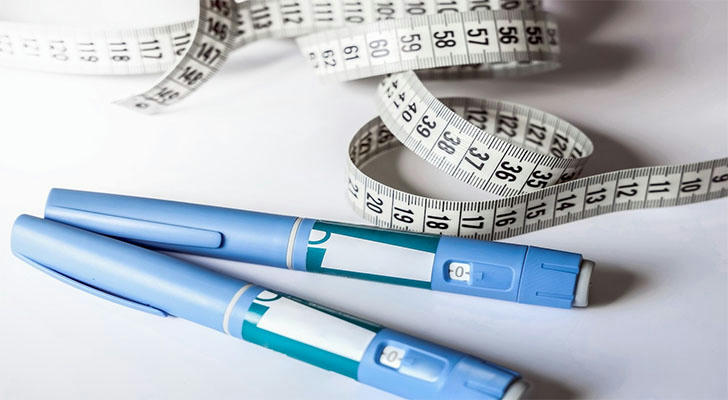Are Weight Loss Injections Safe? How Effective Are They? These Are the Questions You Need to Know

Weight loss injections like Semaglutide and Liraglutide have shown great results for people struggling with obesity. These injections work by reducing appetite and boosting metabolism, leading to significant weight loss. However, safety is a key concern, as side effects such as nausea and stomach problems can occur. It's important to understand how effective these injections are and what risks they carry before considering them.
What Are Weight Loss Injections and How Do They Work?
Weight loss injections are treatments designed to help people lose weight by controlling appetite and metabolism. These injections often contain hormones like GLP-1, which make you feel full longer and slow down digestion. By mimicking natural processes in the body, these injections can lead to significant weight loss when combined with a healthy diet and lifestyle.
FDA-Approved Weight Loss Injections
The FDA has approved several weight loss injections:
• Semaglutide (Wegovy): Approved for long-term weight management in adults who are obese or overweight. Common side effects include nausea, vomiting, and stomach discomfort.
• Liraglutide (Saxenda): Approved for long-term weight management in adults and teenagers with obesity or overweight. Side effects include nausea, vomiting, headaches, and stomach issues.
• Tirzepatide (Mounjaro): Initially approved for treating type 2 diabetes, it is also used for weight loss. Common side effects include nausea, vomiting, and loss of appetite.
These injections are generally safe when prescribed and monitored by a healthcare provider, but serious side effects are possible and should be carefully considered.
Who Should Avoid Weight Loss Injections?
Certain individuals should avoid weight loss injections due to potential health risks, including:
• Those with a history of thyroid cancer
• Those with a history of pancreatitis
• Pregnant or breastfeeding women
• Individuals with severe gastrointestinal issues
• Those with serious kidney or liver disease
• People with a history of drug allergies
• Children and teenagers (unless specifically approved)
• People with uncontrolled diabetes
It’s essential to consult a healthcare provider to assess your specific risks before starting weight loss injections.
How Effective Are Weight Loss Injections?
Weight loss injections like Wegovy, Saxenda, and Mounjaro have proven to be highly effective in both clinical trials and real-world use:
• Semaglutide (Wegovy): Patients can lose an average of 15-20% of their body weight over 68 weeks with lifestyle changes.
• Liraglutide (Saxenda): Users typically lose about 5% to 10% of their body weight over 56 weeks.
• Tirzepatide (Mounjaro): Originally for diabetes, this injection helps with weight loss, averaging 15-22% of body weight over 72 weeks.
Results can vary based on individual factors, including lifestyle, adherence to the treatment, and personal differences.
A Success Story
Take Sarah, a 42-year-old who used Semaglutide (Wegovy). Starting with a low dose and gradually increasing it under her doctor’s guidance, Sarah combined the injection with a balanced diet and regular exercise. Over 12 months, she reduced her BMI from 35 to 28, losing 60 pounds. Her blood pressure and blood sugar levels also improved, moving her from a prediabetic state to healthy levels. Although Sarah experienced mild nausea and stomach discomfort at first, these side effects lessened over time.
Sarah’s story shows how weight loss injections, when paired with lifestyle changes and medical supervision, can lead to significant health improvements and increased confidence.
Weighing the Pros and Cons
If you’re considering weight loss injections, it’s essential to weigh the benefits and drawbacks. These injections can lead to significant weight loss and improved health, but they also come with potential side effects and ongoing costs. Here’s how you can make a more informed decision:
1. Consult Your Doctor:
• Schedule a detailed consultation with your healthcare provider to discuss your medical history, weight loss goals, and the potential risks and benefits of weight loss injections.
• Request a full medical evaluation to determine if you have any conditions that might make injections unsafe or unsuitable for you.
2. Trial Period:
• Consider starting with a short-term trial under your doctor's supervision to see how your body responds to the injections before committing to long-term use.
3. Cost-Benefit Analysis:
• Calculate the total cost of the injections, including follow-up appointments and any necessary tests, and compare this with your budget. Check if your insurance covers any of these expenses.
• Explore patient assistance programs or discounts offered by manufacturers to help offset costs.
4. Lifestyle Integration:
• Develop a comprehensive plan that includes a balanced diet and regular exercise, even if you choose to use weight loss injections. Focus on building habits that can sustain weight loss beyond the use of injections.
• Work with a nutritionist or personal trainer to create a personalized plan that aligns with your health goals.
5. Monitor Progress and Side Effects:
• Keep a detailed log of your progress, including weight loss, side effects, and overall health improvements. Regularly review this with your healthcare provider to assess the effectiveness and adjust the treatment as needed.
6. Explore Alternative Options:
• Before deciding on injections, explore other weight loss options such as medically-supervised diet plans, behavioral therapy, or weight loss medications that might be less invasive or costly.
• Research and consider joining a weight loss support group for additional motivation and guidance.
By taking these operational steps, you can make a well-informed decision about whether weight loss injections are the right fit for your health goals and lifestyle.
